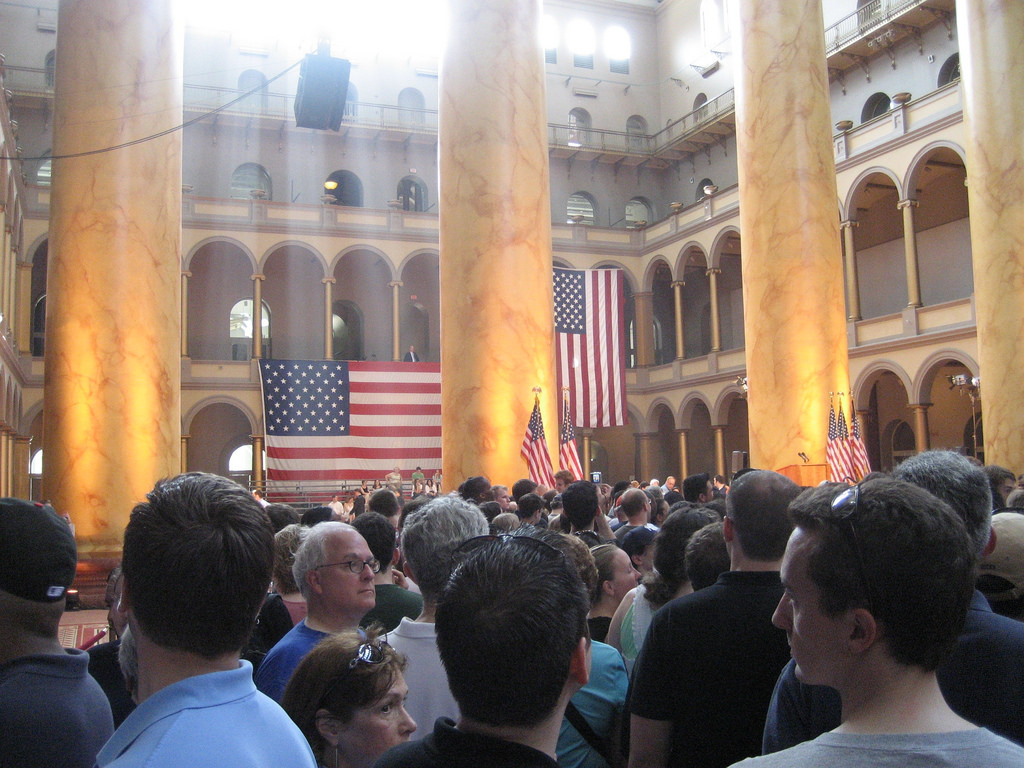| Is this what it feels like to be in play? A couple of op-eds and an off-hand remark during a campaign speech? It may be worth noting that it’s early yet. If polls show Utah tightening in October, people in these distant parts could be getting a lot more attention than they’re used to getting. Attention is a good thing in presidential politics, especially if we get promises in exchange for votes. So far, all we have are op-eds Hillary Clinton and |
| | Donald Trump wrote exclusively for the Deseret News, but that is a lot more than folks here have gotten in a long time. Trump told an audience in Florida he has “a tremendous problem in Utah,” right as a homegrown former CIA operative generated attention by jumping into the race. Next thing you know, the major candidates might discover we have an airport. I’ve been in this business long enough (35 years qualifies as long enough at just about anything) to appreciate how a story idea can float around the country in the space of a couple of news cycles. The headlines in recent days, from the Washington Post to MSNBC and beyond, spread the news far and wide about the potential for Republicans to lose this state for the first time in 52 years (although Trump still leads in recent polls). A couple of observations come to mind. The first is that when a normally predictable state becomes unpredictable, it becomes a bellwether. Utah voters don’t seem to be eagerly jumping behind either major candidate, and this has pundits variously making it a symbol for what’s wrong in all of politics. This is a bit overstated. Utah, as Trump said, “is a different place.” You can’t draw too many larger lessons from what happens here. The second observation is that none of this would be happening if not for the Electoral College. No matter how angry this makes the popular-vote crowd, the preferences of Utah’s 3 million people, in a nation of 320 million, wouldn’t matter much in an election decided by raw votes only. But the state’s six electoral votes represent a lot more in the race to the winning 270-vote mark. So, what would it mean to really be in play? Just for fun, let’s look back on that 1964 race everyone seems to be referencing. Lyndon Johnson ended up beating Barry Goldwater in Utah by about 55 percent to 45 percent, and it was the first time Utah had gone for a Democrat since 1948. In the weeks leading up to the election, the attention the state got was remarkable by today’s standards, and Utah had only four electoral votes to offer at the time. On Sept. 18, Johnson made a surprise visit to Salt Lake City, which he said was only for the purpose of visiting LDS Church President David O. McKay and issuing an invitation for him to stay at the White House. But Johnson was no dummy. He didn’t give a campaign speech, but he took plenty of time to shake hands and kiss babies in the crowds that followed wherever he went. In a sentence that says much about 1964, the Deseret News reported, “You might have thought the Beatles were landing.” On Oct. 12, Goldwater came to town. He spoke at the Tabernacle on Temple Square, drawing a crowd of about 8,000 people. He called for a constitutional amendment to allow prayer in public schools. On Oct. 29, less than a week before the election, Johnson returned. This time it was a formal campaign stop. He spoke at the Tabernacle. Alexei Kosygin had just taken over as Soviet premier, and Johnson devoted much of his talk to his hopes for U.S.-Soviet relations. In many ways, the 1964 election seems like an event on a different planet. You can hear distant echoes of today’s concerns, but the civil nature of it all is disarming. One thing is the same, however. The uncertainty of Utah’s preference prompted both candidates to focus time, and promises, on the state. In that sense, being in play is a good thing, indeed. |


 RSS Feed
RSS Feed

